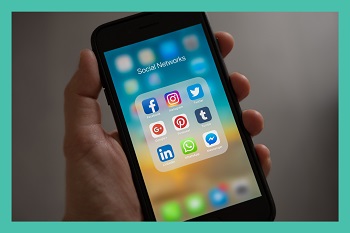7 Tips for Navigating Stress and Uncertainty
Presently, our nation’s doctors are among those most affected by prolonged exposure to stress. For instance, when compared with the general population, emotional exhaustion among physicians is 28% higher than the overall average (Verywell Health). With no foreseeable end to the primary sources of physician stress in sight (i.e. complicated EHR systems, bureaucratic processes, a physician shortage), what can clinicians do to protect their mental health?
When actively practiced, the following seven recommendations can help ensure that physicians have the emotional bandwidth to successfully cope with healthcare’s constantly evolving landscape.
Mental Health Protection Tips
1. Allow Yourself to Feel Your Feelings
From a young age, we are taught that “big kids don’t cry.” Consequently, we view the expression of any negative emotion as a sign of weakness. However, apprehension, pain, frustration, sadness and anger are all part of the human experience. When we attempt to fast forward through the unpleasant parts of our life, we rob ourselves of opportunities to grow and develop. The next time you find yourself faced with an unwanted flood of emotions, find some time to be by yourself and fully process what you are feeling. Sit with your emotions. Examine them. Identify them by name. Ask yourself why you are experiencing this set of emotions. Knowing what you’re feeling and why you are feeling they way you do is the first step towards finding a resolution.
When we attempt to fast forward through the unpleasant parts of our life, we rob ourselves of opportunities to grow and develop.
2. Distract Yourself
While it is important to recognize and acknowledge the emotions that you are experiencing, excessive rumination on them can cause a situation to feel worse or more unmanageable than it is. If you find yourself obsessively rehashing a past event or playing out future scenarios, for the sake of your mental health, try distracting yourself. Direct your attention and your energy to a completely unrelated subject or task. For instance, you can work on a hobby, tackle that household project that you’ve been meaning to get to or work on a puzzle of some sort. Focusing your mind on new thoughts and behaviors can substantially decrease the intensity of emotions in the moment. While this tactic will not eliminate the negative emotions that you are feeling, it will make them more manageable.
3. Eat Well
 When dealing with increased amounts of stress, your diet can play a critical role in protecting and promoting your mental health. While it is tempting to think that a few more takeout meals or treats won’t really hurt anything, the truth is that neglecting this basic physical need can exacerbate the symptoms associated with depression and anxiety. In a Harvard Health Blog, entitled “Nutritional psychiatry: Your brain on food,” Doctor Eva Selhub postulates that there is a direct connection between your digestive system and your emotional health. “Since 95% of your serotonin is produced in your gastrointestinal tract…it makes sense that the inner workings of your digestive system don’t just help you digest food, but also guide your emotions.” A diet that is rich in vitamins, minerals, fiber and probiotics can play a critical role in helping you achieve optimal mental health.
When dealing with increased amounts of stress, your diet can play a critical role in protecting and promoting your mental health. While it is tempting to think that a few more takeout meals or treats won’t really hurt anything, the truth is that neglecting this basic physical need can exacerbate the symptoms associated with depression and anxiety. In a Harvard Health Blog, entitled “Nutritional psychiatry: Your brain on food,” Doctor Eva Selhub postulates that there is a direct connection between your digestive system and your emotional health. “Since 95% of your serotonin is produced in your gastrointestinal tract…it makes sense that the inner workings of your digestive system don’t just help you digest food, but also guide your emotions.” A diet that is rich in vitamins, minerals, fiber and probiotics can play a critical role in helping you achieve optimal mental health.
4. Stay in the Present
What does it mean to “stay in the present?” Simply put, it means not worrying about what has happened in the past and not stressing about what could happen in the future. It is actively engaging your mind with what your body is doing in the moment. For instance, if you were washing dishes, “staying present” could involve noticing the temperature of the water, taking in the smell of the dish soap and enjoying the dish’s transformation from dirty to clean. It would not include ruminating over the tasks still on your to-do list or watching the clock to see how long the task is taking. Individuals that actively practice being present notice a reduction in overall stress, increased focus, less emotional reactivity and more cognitive flexibility, all important mental health benefits when combating a surge of negative emotions (America Psychological Association).
Individuals that practice being present notice a reduction in overall stress, increased focus, less emotional reactivity and more cognitive flexibility.
5. Get Outside
Stress reduction is one of the most well-know benefits associated with spending time in nature. According to a study by Science Direct, spending time outdoors can help improve your overall mental health by increasing life satisfaction, happiness and mindfulness (The American Institute of Stress). While camping excursions into the great unknown are one way to get in touch with Mother Nature, there are a host of other options available for the urban-bound and/or dirt-disinclined individual. For instance, taking a walk through a local park, planting and caring for a garden (or just a plant) and observing the sights and sounds of the wildlife in your own backyard are all attainable ways to partake of the earth’s goodness. Whatever option you choose, remember to take a deep breath and enjoy the beauty that surrounds you.
6. Take a Break from Social Media
 Thanks to the popularity of various social media platforms, you can now virtually connect with 49% of the world’s population, approximately 3.81 billion people (DATAREPORTAL). In theory, it would make sense that this increased connectivity would leave people feeling more supported, engaged and fulfilled. However, time and again, studies have found that lower levels of social media usage are associated with better mental health (Psychology Today). If you find that your social media sessions are leaving you with feelings of anger, frustration, resentment or sadness, consider taking a break from all the platforms. Whether you choose to step away for just one day, one week or one month, you will find yourself more relaxed and optimistic about life and its challenges.
Thanks to the popularity of various social media platforms, you can now virtually connect with 49% of the world’s population, approximately 3.81 billion people (DATAREPORTAL). In theory, it would make sense that this increased connectivity would leave people feeling more supported, engaged and fulfilled. However, time and again, studies have found that lower levels of social media usage are associated with better mental health (Psychology Today). If you find that your social media sessions are leaving you with feelings of anger, frustration, resentment or sadness, consider taking a break from all the platforms. Whether you choose to step away for just one day, one week or one month, you will find yourself more relaxed and optimistic about life and its challenges.
7. Get Help
While we have done our best to compile a list of ways that you can protect your mental health, we realize that these tactics may not be enough. If you find yourself having more bad days than good or feel unable to cope with your present circumstances, we strongly encourage you to talk with a mental health professional. To that end, the following mental health resources are free, confidential and specifically targeted to healthcare workers:
- Coaches4Good – Providing healthcare workers with a 30-minute pro bono coaching session to help navigate the impact of COVID-19 on your work and life
- Headspace – Providing all healthcare professionals with free access to Headspace Plus (a mental health app) through the end of 2020
- Physician Health Program – A 24/7 confidential helpline that immediately connects physicians with a licensed clinical counsellor
- Talkspace – Offering free online counseling via text, audio or video messaging to healthcare workers
You can’t pour water from an empty cup. That is why you, as a healthcare provider, have an obligation to prioritize your mental health and wellbeing. Your patients, family, friends and community will be better served when you are living a happy and balanced life.
Interested in exploring your career options as a locum tenens? Premier Physician Services LLC would love to connect. Contact us today to learn about the exciting career opportunities that we have waiting for you.
